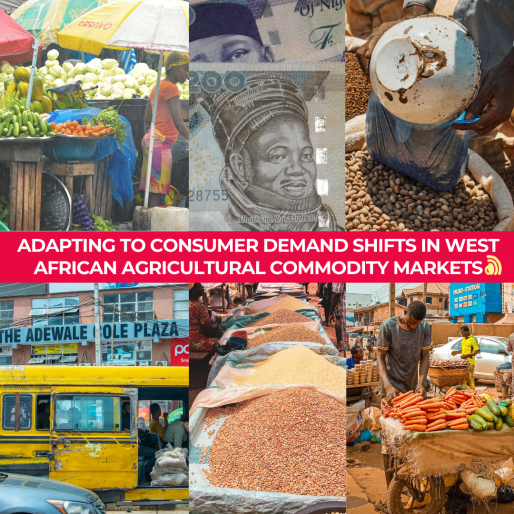West Africa’s agricultural commodity markets are undergoing significant transformations, driven by evolving consumer demands. Factors such as population growth, urbanization, and rising incomes have led to increased demand for diverse and convenient food products. To remain competitive and sustainable, stakeholders in the agricultural sector must adapt to these shifts.
A report by the Organisation for Economic Co-operation and Development (OECD) highlighted that West African consumers increasingly seek convenience and variety in their diets, with a growing preference for perishable goods and higher-quality products. This trend necessitates a shift from traditional staple crops to a more diversified agricultural output.
Several initiatives have emerged in response to these changing demands across West Africa. Reuters reported that Ivorian farmers have adopted a new rice variety resistant to fluctuating weather conditions, capable of yielding up to 5 metric tons per hectare—significantly higher than previous yields. This development aims to reduce the country’s reliance on rice imports and achieve self-sufficiency by 2027. In Nigeria, ThriveAgric launched a pilot program involving 30,000 farmers to plant fruit trees alongside traditional crops. This agroforestry approach sequesters carbon and allows farmers to earn additional income through carbon credits, contributing to economic growth and environmental sustainability.
The cocoa industry, a significant export commodity for countries like Côte d’Ivoire and Ghana, has faced challenges due to shifting consumer demands and supply constraints. In 2024, cocoa prices surged to record highs, driven by a substantial global supply deficit—the largest in 60 years—primarily caused by adverse weather conditions. Despite rising prices, consumer demand for chocolate remained steady, indicating inelastic demand.
This scenario underscores the need for stakeholders to adapt to market volatility and consumer preferences to effectively navigate these evolving market dynamics. Agricome Africa advises that stakeholders should consider the following strategies:
- Diversification: Farmers should diversify their crop production to include high-demand commodities, reducing dependence on a single crop and mitigating risks associated with market fluctuations.
- Sustainable Practices: Implementing sustainable agricultural methods, such as agroforestry and climate-resilient crop varieties, can enhance productivity and meet consumer preferences for environmentally friendly products.
- Market Research: Agricultural traders and producers should invest in market research to stay informed about consumer trends, enabling them to tailor their products to meet changing demands effectively.
- Policy Engagement: Engaging with policymakers to advocate for supportive infrastructure, such as improved transportation and storage facilities, can facilitate better market access and reduce post-harvest losses.
By embracing these strategies, West African farmers, traders, and other stakeholders can adapt to consumer demand shifts, ensuring the resilience and growth of the agricultural sector in the region.
